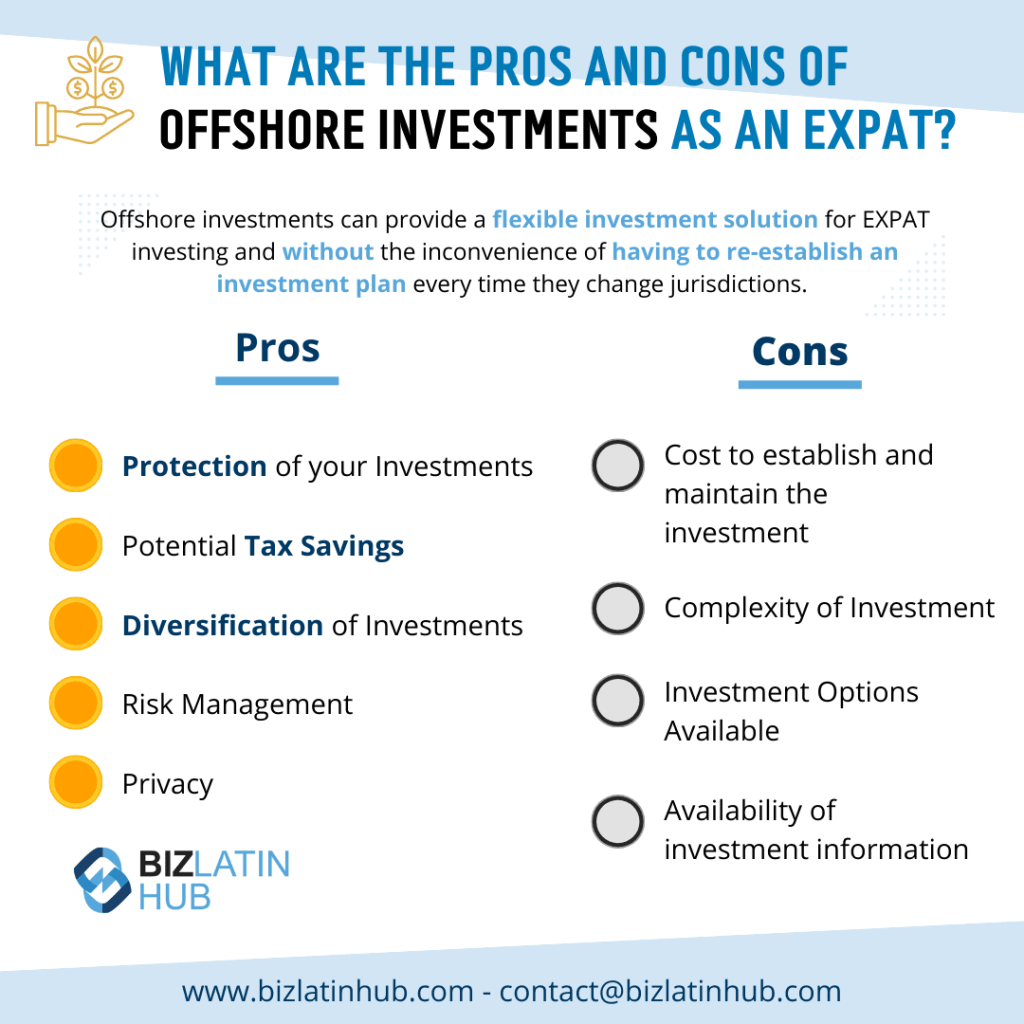What You Required to Take Into Consideration Before Making an Offshore Investment Decision
All Concerning Offshore Financial Investment: Insights Into Its Benefits and Factors To Consider
Offshore investment has come to be an increasingly appropriate topic for individuals seeking to expand their portfolios and improve economic safety and security. While the possible advantages-- such as tax obligation optimization and property defense-- are engaging, they come with an intricate landscape of threats and governing difficulties that require careful consideration. Comprehending both the advantages and the risks is essential for any individual pondering this financial investment strategy. As we check out the nuances of offshore financial investment, it becomes noticeable that notified decision-making is essential for optimizing its potential advantages while mitigating fundamental risks. What aspects should one prioritize in this detailed atmosphere?
Understanding Offshore Investment
In the realm of international money, recognizing overseas financial investment is important for individuals and entities seeking to maximize their financial profiles. Offshore financial investment refers to the positioning of properties in financial institutions outside one's country of home. This technique is usually used to attain different monetary goals, including diversity, property security, and potential tax obligation benefits.
Offshore investments can include a broad variety of financial instruments, including supplies, bonds, mutual funds, and real estate. Capitalists may choose to develop accounts in jurisdictions recognized for their positive regulatory settings, privacy regulations, and economic security.
It is vital to recognize that overseas investment is not naturally synonymous with tax obligation evasion or illicit tasks; rather, it offers legitimate functions for many financiers. The motivations for taking part in offshore financial investment can vary extensively-- from seeking higher returns in established markets to protecting properties from political or economic instability in one's home nation.

However, possible investors need to likewise know the complexities included, such as compliance with international regulations, the requirement of due diligence, and recognizing the legal ramifications of offshore accounts. In general, a thorough understanding of overseas financial investment is vital for making enlightened economic choices.
Trick Advantages of Offshore Investment
Offshore investment offers several key advantages that can boost a capitalist's economic approach. This can significantly raise total returns on financial investments.
Furthermore, offshore investments typically offer accessibility to a wider variety of investment opportunities. Investors can expand their portfolios with assets that may not be conveniently offered in their home nations, including international supplies, real estate, and specialized funds. This diversity can reduce danger and improve returns.

Additionally, overseas investments can assist in estate preparation. They enable financiers to structure their properties in a way that reduces estate tax obligations and ensures a smoother transfer of riches to beneficiaries.
Usual Risks and Challenges
Spending in overseas markets can offer various risks and difficulties that need mindful factor to consider. One significant risk is market volatility, as offshore investments might undergo variations that can affect returns substantially. Investors should likewise recognize geopolitical instability, which can interfere with markets and influence financial investment efficiency.
Another challenge is currency risk. Offshore investments frequently include deals in foreign money, and negative currency exchange rate activities can erode earnings or boost losses. Offshore Investment. Furthermore, limited accessibility to trustworthy information concerning overseas markets can prevent informed decision-making, resulting in potential bad moves
Lack of governing oversight in some offshore territories can also posture risks. Financiers may find themselves in environments where capitalist defense is very little, enhancing the risk of fraudulence or mismanagement. In addition, varying monetary practices and social perspectives towards investment can make complex the financial investment process.
Regulative and legal Factors to consider
While navigating the complexities of overseas investments, recognizing the legal and regulatory landscape is critical for securing assets and ensuring compliance. Offshore financial investments are typically subject to a wide variety of laws and laws, both in the investor's home nation and the territory where the investment is made. It is crucial to conduct complete due diligence to understand the tax obligation ramifications, reporting demands, and any kind of lawful commitments that may develop.
Regulatory frameworks can vary considerably in between territories, impacting everything from taxes to funding needs for foreign capitalists. Some nations may supply desirable tax routines, while others enforce rigorous regulations that could discourage financial investment. In addition, global agreements, such as FATCA (Foreign Account Tax Compliance Act), may obligate investors to report offshore holdings, increasing the need for openness.
Investors should likewise be conscious of anti-money laundering (AML) and know-your-customer (KYC) guidelines, which need banks dig this to confirm the identification of their customers. Non-compliance can lead to serious penalties, including fines and constraints on financial investment tasks. Therefore, involving with lawful professionals focusing on worldwide investment law is crucial to navigate this elaborate landscape efficiently.
Making Educated Decisions
A tactical strategy is necessary for making educated decisions in the realm of offshore financial investments. Comprehending the intricacies included requires extensive study and evaluation of various variables, consisting of market fads, tax ramifications, and lawful frameworks. Capitalists should evaluate their threat tolerance and financial investment goals, making certain positioning with the one-of-a-kind qualities of overseas opportunities.
Looking at the governing setting in the chosen jurisdiction is vital, as it can substantially influence the safety and profitability of investments. Furthermore, staying abreast of geopolitical advancements and financial problems can give beneficial understandings that educate financial investment approaches.
Involving with specialists that concentrate on overseas financial investments can additionally boost decision-making. Offshore Investment. Their knowledge can direct financiers through the complexities of international markets, helping to identify rewarding chances and potential mistakes
Ultimately, notified decision-making in offshore financial investments hinges on a well-rounded understanding of the landscape, a clear articulation of specific objectives, and a dedication to ongoing education and learning and adaptation in a vibrant worldwide atmosphere.
Conclusion
To conclude, overseas financial investment presents substantial advantages such as tax obligation optimization, asset defense, and accessibility to international markets. Nonetheless, it is essential to recognize the associated threats, consisting of market volatility and regulative challenges. A complete understanding of the legal landscape and diligent research is important for successful navigation of this complicated arena. By dealing with these factors to consider, investors can effectively harness the benefits of offshore financial investments while reducing potential drawbacks, ultimately resulting in notified and tactical financial choices. check out this site
Offshore financial investment uses several key benefits that can boost a capitalist's economic approach.Additionally, overseas financial investments typically supply accessibility to a broader range of investment find opportunities. Varying economic methods and cultural attitudes towards investment can make complex the financial investment process.
